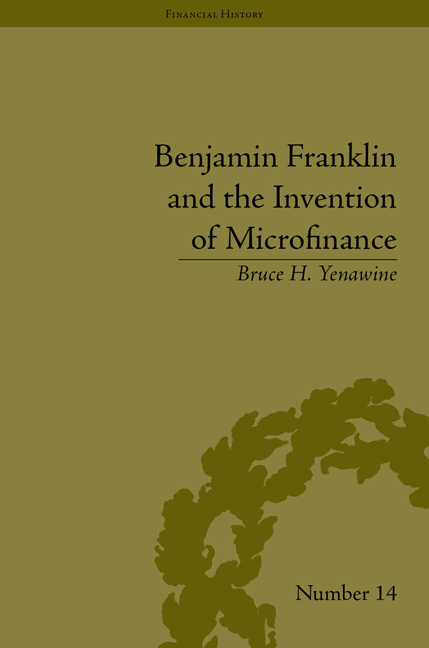Book contents
- Frontmatter
- CONTENTS
- Acknowledgements
- Biography of Bruce Yenawine
- Introduction
- 1 Franklin's Intent: The Autobiographical Origins of the Codicil
- 2 Franklin's Intent: The Sources of Political and Economic Concepts
- 3 Boston: The First Century
- 4 Philadelphia: The First Century
- 5 The Centennial in Boston and Philadelphia
- 6 Boston: The Second Century
- 7 Philadelphia: The Second Century
- 8 Bicentennial: Boston and Philadelphia
- Conclusion: Virtues in Conflict
- Appendix A Transcription of the 1789 Codicil
- Appendix B Boston Artisan List
- Appendix C Philadelphia Artisan List
- Appendix D Summary of Litigation and State Laws
- Appendix E Chronology
- Appendix F Franklin's Calculation and Actual Value
- Notes
- Works Cited
- Index
1 - Franklin's Intent: The Autobiographical Origins of the Codicil
- Frontmatter
- CONTENTS
- Acknowledgements
- Biography of Bruce Yenawine
- Introduction
- 1 Franklin's Intent: The Autobiographical Origins of the Codicil
- 2 Franklin's Intent: The Sources of Political and Economic Concepts
- 3 Boston: The First Century
- 4 Philadelphia: The First Century
- 5 The Centennial in Boston and Philadelphia
- 6 Boston: The Second Century
- 7 Philadelphia: The Second Century
- 8 Bicentennial: Boston and Philadelphia
- Conclusion: Virtues in Conflict
- Appendix A Transcription of the 1789 Codicil
- Appendix B Boston Artisan List
- Appendix C Philadelphia Artisan List
- Appendix D Summary of Litigation and State Laws
- Appendix E Chronology
- Appendix F Franklin's Calculation and Actual Value
- Notes
- Works Cited
- Index
Summary
In 1789, Benjamin Franklin added a codicil to his Last Will and Testament. He bequeathed a total of £2,000 sterling to the cities of Boston and Philadelphia and to the Commonwealths of Massachusetts and Pennsylvania with explicit instructions as to how they should utilize and dispose of the sum over a span of 200 years. Conscious of the vicissitudes of human nature, Franklin anticipated problems in execution of these provisions: ‘Considering the accidents to which all human Affairs and Projects are subject in such a length of Time, I have, perhaps, too much flattered myself with a vain Fancy, that these Dispositions, if carried into execution, will be continued without interruption and have the Effects proposed’. Franklin's recognition that his testamentary instructions might not be honoured or remain effective, conveyed a quality of humility and vulnerability that he frequently feigned but rarely internalized.
The Founding Fathers of America, including Franklin, held strong opinions about civic virtue forged by the trials and triumphs of their illustrious lives. They believed that good citizens, whether tradesmen in the cities or farmers in the country, exemplified such virtues as ‘thrift, industry, prudence, self-reliance, independence, and civic concern’. Franklin, however, stood alone in his extraordinary ability to personify and command public attention for these virtues. He utilized his extensive printing business and his literary skill to profoundly influence his generation.
- Type
- Chapter
- Information
- Benjamin Franklin and the Invention of Microfinance , pp. 7 - 20Publisher: Pickering & ChattoFirst published in: 2014



